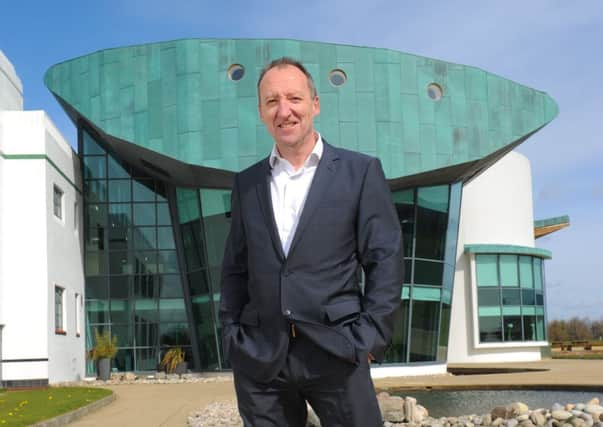Comment: The music industry and entrepreneurs


Growing up in Dundee, Govan Law Centre’s Mike Dailly played guitar for local bands Citizen Kane and The Very Important Men, and by the age of 15 was touring regularly.
Fellow Dundonian Chris van der Kuyl featured on the keyboards for Big Blue 72 before going on to make a name for himself in video games.
Advertisement
Hide AdAdvertisement
Hide AdJohn Innes – who last year led the sale of Glasgow IT group Amor to Lockheed Martin – left his native Aberdeen in the 1980s to go to London with New Romantic band Dekka Danse. They had some minor success, including a brief deal with CBS.
Even the venerable Rupert Soames, who until recently headed Glasgow temporary power group Aggreko, lays claim to a rather cool past. The grandson of Sir Winston Churchill admits his third-class degree from Oxford followed too much time as a DJ at Annabel’s nightclub in London.
There is no definitive list of these would-be musicians who turned to business, but if there was, it would run to a significant length.
According to Innes, the music industry is an ideal training ground for the corporate world. A successful band must work together to produce a valued product while also marketing the group and managing its finances – all of which are vital skills in commerce.
That said, it would be a mistake to dismiss the music scene as a mere trial run for the so-called “real world”. The industry’s financial contributions can fluctuate greatly depending on release and concert schedules, but it is a major component in the increasingly important cultural economy.
Tomorrow sees the beginning of events in the run-up to BBC Radio 1’s Big Weekend, with 50,000 descending on Glasgow Green across Saturday and Sunday. Headlined by Coldplay and Katy Perry, performances are scheduled from dozens of other acts including locally grown Chvrches, Twin Atlantic and Honeyblood. It is the first time the Big Weekend – touted as the largest free ticketed music event in Europe – has been held in Glasgow, adding to its status as a Unesco City of Music. According to the council, Glasgow hosts an average of 130 music events every week, adding about £75 million annually to the local economy.
Across the country, it is estimated that some £62m is spent every year at events such as RockNess and T in the Park. Music festivals, particularly boutique events such as the World Ceilidh being held at Knockengorroch this week, have been credited with driving tourist numbers and spending.
Across the spectrum of music, art, film, fashion, IT and so forth, the creative economy is thought to generate about £4.8 billion in annual turnover for Scotland.
Based on ingenuity and original thinking, it is the new gold rush, with high-value returns for those who hit the most innovative veins. «